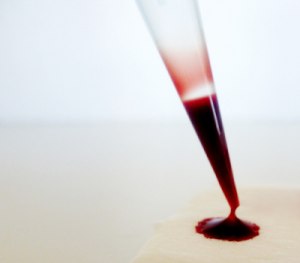Blood Testing for Menopause?
 Although the generally accepted medical standard for diagnosing menopause is simply an absence of menstrual periods for 12 months, women sometimes have questions about whether they have actually entered that phase. Fortunately, their questions do not need to go unanswered. There are blood tests available that can help determine if a woman has, in fact, entered menopause.
Although the generally accepted medical standard for diagnosing menopause is simply an absence of menstrual periods for 12 months, women sometimes have questions about whether they have actually entered that phase. Fortunately, their questions do not need to go unanswered. There are blood tests available that can help determine if a woman has, in fact, entered menopause.
Why Test for Menopause?
It should be easy enough for a woman to tell that she has stopped having periods. So why would blood testing even be needed?
Symptoms of menopause can overlap with symptoms of some serious medical conditions. Testing for menopause can confirm that it has actually occurred, and that the symptoms are not the result of some other condition. Such a confirmation offers peace of mind.
Determining when menstruation has ceased is not always as straightforward as it might seem. A woman in the early stages of menopause may experience irregular periods for quite some time before they cease altogether. MedicineNet.com suggests that medical evaluation is important in order to confirm that a woman’s body is simply going through its normal change, and not responding to some other medical condition. Such medical evaluation can be aided by blood tests.
Women in special situations can also benefit from blood testing. BreastCancer.org explains that women who have had hysterectomies but still have their ovaries won’t have periods at all, but their ovaries continue to ovulate until menopause. Women undergoing chemotherapy or experiencing other physical trauma may also miss a few periods. Blood testing can provide evidence that menopause has or has not occurred in these situations.
What Blood Tests are Available for Menopause Testing?
According to the Mayo Clinic, the main tests used to test for menopause check blood levels of follicle-stimulating hormone (FSH) and estrogen (estradiol). As menopause takes place, FSH levels increase and estradiol levels decrease, resulting in recognizable patterns indicating a change is occurring. Other hormone levels, such as testosterone, progesterone, and luteinizing hormone (LH) can also help. Considering all the hormone levels together is important. For example, according to EarlyMenopause.com, while high FSH levels indicate menopause, high LH levels in conjunction with high FSH levels can suggest polycystic ovarian syndrome, rather than menopause. Analyzing the test results individually may not tell the whole story.
Can I Request Menopause Testing?
Legally, most lab tests must be requested by a doctor. Under the traditional model, you consult with your doctor, and your doctor determines whether testing is needed. Some doctors are open to lab test requests from patients, but others are not. Additionally, such testing is often cost-prohibitive to uninsured patients, or to patients with large deductibles. And some insurance companies place limits on testing.
An alternative is patient-direct testing. Blood testing centers across the country allow you, the patient, to essentially order your own lab tests. Generally, nurses are on duty to assist you in choosing which tests you need. Nurses also help you understand your results and help you decide what to do next. It’s not a substitute for a physician’s care, but it can help you start your journey in getting the answers you need.
Author: Cynthia Johnson is a lab assistant and online contributor for healthtestingcenters.com, one of the most notable Blood Testing Centers, offering prescribed or self-ordered tests for cholesterol, thyroid function, liver function, etc.



Leave a Reply